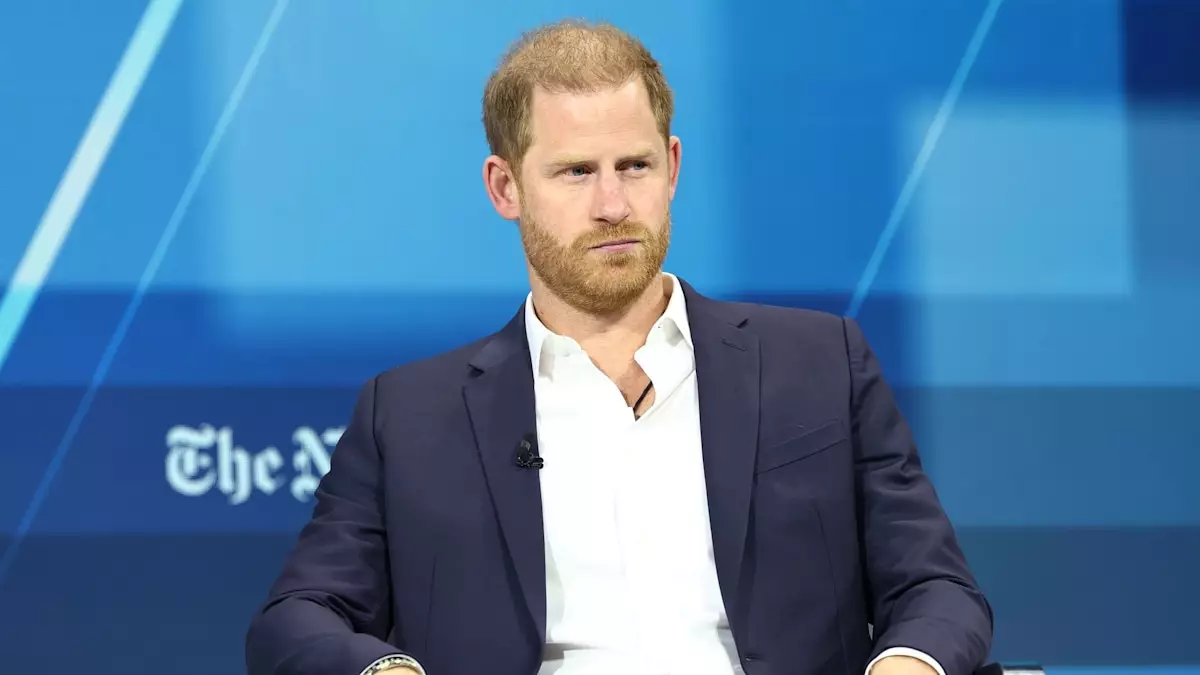In a world dominated by social media and incessant public scrutiny, individuals from royal families to celebrities often find their personal lives rendered as public spectacle. This concept was brought into sharp focus when Prince Harry addressed speculation surrounding his marriage with Meghan Markle during his appearance at the New York Times 2024 DealBook Summit. Amidst an environment rife with rumors about their relationship, Harry’s candid responses highlighted the strain that public opinion can place on private lives and the broader implications of media misinformation.
During his interview with New York Times columnist Andrew Ross Sorkin, Prince Harry acknowledged the public’s relentless interest in the dynamics of his marriage. The fact that he and Meghan had not been seen together since mid-August fueled wild speculations about their relationship status. When Sorkin pointed out the plethora of articles questioning their separations during independent engagements, Harry’s response was both humorous and revealing. He remarked, “Because you invited me, you should have known!” This quip illustrates the absurdity of the public’s obsession with the minutiae of their lives while also shedding light on the disconnect between celebrity personas and reality.
The Prince elucidated further when he stated, “No, that’s definitely not a good thing,” regarding the unfounded rumors, which have included outrageous claims such as multiple divorces and frequent house moves. The absurdity of such assertions highlights the toxic culture of celebrity gossip where truth is often secondary to sensationalism. Harry’s transparent frustration with these fabrications underscores the psychological toll that constant scrutiny exerts on individuals attempting to maintain their normalcy.
At the heart of Prince Harry’s comments lies a harsh truth about the digital age: misinformation can snowball rapidly, shaping public perception long before the truth has a chance to surface. Speaking about his lived experience, Harry reflected on the stories crafted around his life, none of which were grounded in reality. His words echo a universal struggle felt by many public figures: the battle against narratives that seem designed to provoke, mislead, or sensationalize personal experiences. This relentless cycle of misinformation can lead to real-world consequences, affecting relationships and even mental health.
Harry’s approach to handling rumors is surprisingly pragmatic. He suggested that ignoring the chatter is the only viable response, particularly when the “hopes” of internet trolls are built upon a foundation of fantasy rather than fact. He compassionately expressed sympathy for these individuals, recognizing that their investment in his story—a story built on hearsay and conjecture—could only result in disappointment. By focusing on what truly matters—his roles as a husband and father—Harry champions a perspective grounded in personal integrity over public perception.
Reflecting on his upbringing surrounded by tabloids and media invasions, Harry articulated the profound impact these external narratives have had on him and his family. The tragedy of losing his mother, Princess Diana, underlined the dangers inherent in a life led in the public eye—especially one that experiences relentless media scrutiny. The Prince’s acknowledgment of his past experiences sheds light on why he is especially invested in safeguarding his family’s peace.
As he prepares for a future that includes both his public engagements and private duties, Harry’s approach offers a refreshing lens through which to view the lives of public figures. His declarations reveal not only a desire to shield his loved ones from unwarranted speculation but also an invitation for the public to reconsider how they engage with celebrity culture.
In an age where headlines often overshadow humanity, Prince Harry’s remarks serve as a poignant reminder of the cost of celebrity culture on personal lives. He stands as a figure wrestling with the impacts of media-driven narratives, advocating for a more compassionate approach to how we engage with public figures. By moving past empty speculation and focusing on genuine, respectful dialogue, society can foster an environment that celebrates authenticity rather than perpetuating rumors. Ultimately, these insights may serve as a clarion call for all individuals to remember that behind every headline, there’s a complex human story deserving of understanding and respect.

